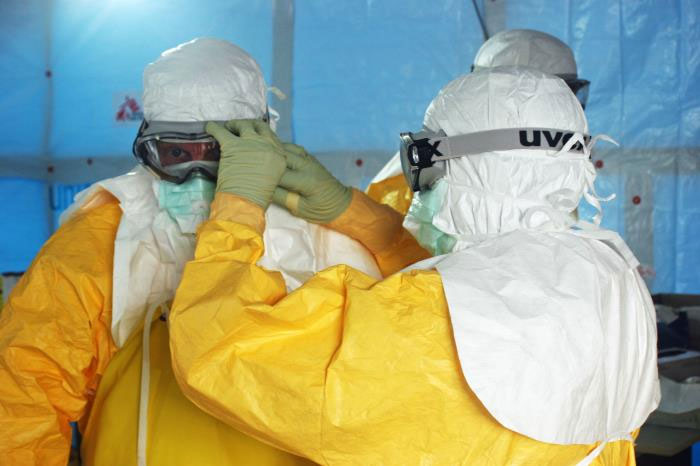Doctors Who Treat Ebola Feel More Socially Isolated

Doctors who take care of very sick Ebola patients may feel socially isolated, but surprisingly, they may not feel more stressed than usual, a new study from Germany suggests.
Researchers surveyed 46 health care workers who treated Germany's first Ebola patient in August 2014, as well as 40 health care workers who worked in the same hospital but did not treat the Ebola patient.
The researchers who did the study hypothesized that the people who treated the Ebola patient would have more symptoms of psychological distress because they were working in a challenging environment that presented a risk that they could become infected with the deadly virus.
But to the contrary, the study found that those who treated the Ebola patient had about the same levels of anxiety, depression and fatigue as the other workers at the hospital who did not treat the patient. And both groups had about the same level of psychological stress as the general population. [11 Tips to Lower Stress]
The findings show that "a well-trained and dedicated team can cope well with the stress of caring for a severely ill Ebola patient," the researchers, from the University Medical Center Hamburg-Eppendorf in Germany, wrote in a paper to be published in an upcoming issue of the journal Emerging Infectious Diseases.
However, the staff that treated the Ebola patient reported feeling more social isolation than those not involved in the patient's care.
The Ebola-treatment staff also felt that their shifts, which lasted up to 12 hours, were too long. The researchers recommended that shifts be decreased to 8 hours.
Get the world’s most fascinating discoveries delivered straight to your inbox.
Because the study surveyed participants at one point in time, it's not possible to know whether their stress level changed during the study, compared with before the study.
Follow Rachael Rettner @RachaelRettner. Follow Live Science @livescience, Facebook & Google+. Original article on Live Science.

Rachael is a Live Science contributor, and was a former channel editor and senior writer for Live Science between 2010 and 2022. She has a master's degree in journalism from New York University's Science, Health and Environmental Reporting Program. She also holds a B.S. in molecular biology and an M.S. in biology from the University of California, San Diego. Her work has appeared in Scienceline, The Washington Post and Scientific American.
 Live Science Plus
Live Science Plus





